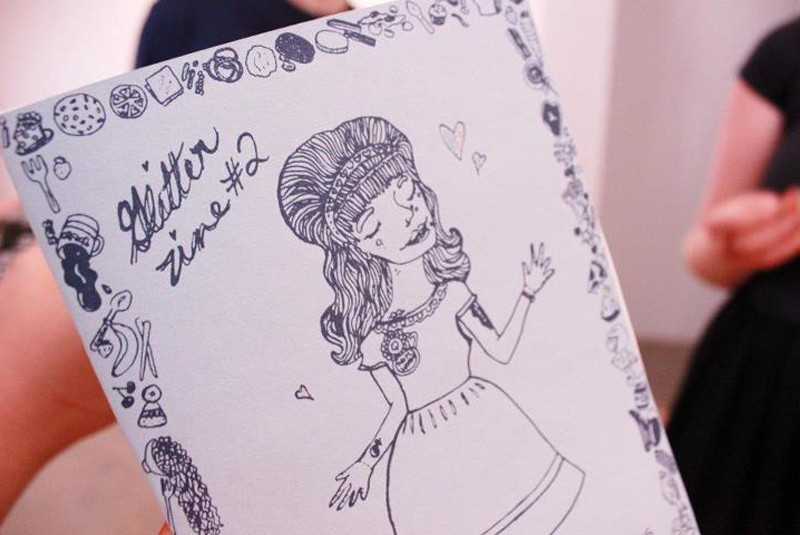Self-love and bad grammar
What I’ve learned from making zines
I started writing zines when I was 16.
As with most projects, this one required more work than I had ever imagined. However, unlike forgotten knitting projects and math assignments, I finally finished.
It took me five months to write Glitter Zine #1.
I suppose I had too many ideas bouncing around my head as a feminist teenage girl with a newfound love for sharing my opinions.
When you are as used to abandoning projects as I am, it is surprising to finally get one off your back. I had never been more proud of myself - I held a couple of freshly printed pages, folded them and leaned over the photocopier to admire my work.
Making zines is a unique and exciting experience.
The idea of people being exposed to your work is terrifying. The thought of people disliking it is even worse, but then it is important to think back to why you started.
I write for myself, to get some clarity in my life. I do not put my articles out in the world to impress anyone else.
I write to feel free.
Zines represent a certain “don’t care what other people think” attitude.
Known to many DIY punk movements, making independent, self-published books or magazines was a cheap and easy way to get your opinion out in the world, to spread awareness for a cause or to share your artwork with others.
They could be produced on a large or small scale and were easy enough to distribute among friends and communities.
Notorious for being deeply personal, zines have a way of capturing people in a specific moment of their lives when they are feeling most creatively aroused.
Much like picking up an old snapshot or lost journal, you may never know the person who made what you are holding and yet there is often a strong connection there.
The reader becomes a part of the process by taking on the writer’s stories. That demonstrates a part of the magic of literature on a smaller scale: the idea that you share the same experiences with someone you have never met and that perhaps we are all more similar than we think.
While I mainly write to maintain a certain level of independence, a lot of my work as a feminist touches on empowering and inspiring other people.
I started Glitter as an outlet for talking about the oppressive beauty standards that affected me.
I grew up a chubby kid with acne and it took me until recently to come to terms with those facts. By writing about my emotions toward my body, I became a more confident woman.
Since sharing my work, I often receive emails and letters saying I’ve helped people work through their own insecurities.
Communication and conversation are my greatest inspirations, and the zine community filled the void I felt as an out-of-place 16-year-old girl with female bonding, craft parties and zine trades.
As our parents and teachers often remind us, we must do what we love in this world.
I am still not sure if writing is what I love to do, but the best part of making zines is that you never have to know. There is no perfect way to do it. It is a medium perfect for rebellion and the exploration of one’s self.
There is no reason why we cannot scratch out words, paste in images or make spelling mistakes.
Having a final product that simply says “this is where I am in my life right now” is liberating because we realize there are no wrong answers to the questions you are asking.
Embracing the mess and enjoying the chaos is half the fun, and finding inspiration or empowerment on the journey is just the icing on the cake.
Stephanie Poruchnyk-Butler is a Grade 12 student at Collège Churchill and the creator of Glitter Zine.
Published in Volume 67, Number 4 of The Uniter (September 26, 2012)







